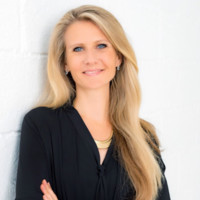It’s no surprise workplace toxicity is a hot topic right now. With influential players such as Simon Sinek, Gary Vee and Brené Brown encouraging us to find meaning in our work, the spotlight is on company culture more than ever. As many people begin to place a higher value on fulfilment, work-life balance, mental health and autonomy than salary – the tolerance for workplace toxicity is declining. And questions around corporate sustainability are being raised in online and offline forums worldwide.
In a post I wrote last week, I discussed how we as employees, leaders and companies contribute to keeping toxic work cultures alive. The post has been shared over 550 times. Possibly indicating how relevant (and rife?) workplace toxicity is today.
Of course, it’s not a new topic. Most are aware of workplace toxicity and its impact on the bottom line. Which begs the question: if companies are aware of it and the negative impact it has – why is it seemingly so prevalent?
The short answer? Because we’re human beings. Human beings with a natural default-setting of survival. Driving us to focus on avoiding short-term pain instead of long-term gain. In simplest terms:
We’re scared of loss.
The loss of:
Customers, clients, business. Revenue, profit and market share.
Reputation, image, status. Admiration and recognition
Money, lifestyle, luxury. Security, safety, peace of mind.
Fear which manifests in micromanagement, avoidant leadership, withholding information, gossiping, backstabbing, aggression, arrogance, unrealistic expectations, high stress, perfectionism, lack of delegation, disempowerment. And the tolerance of such behaviours.
The Solution?
While the problem is complex, the solution at its core is simple:
Building a culture of SELF-BELIEF and ACCOUNTABILITY.
Helping employees to develop courage and confidence. Encouraging them to be accountable for their actions and their growth. And creating an environment which supports the same. A culture of “Believe in yourself. And if you fall, with mutual accountability, we’ll help you get back up again. Because we believe in you too.”
Toxic environments are nothing more than a symptom of insecurity. The only antidote to which is self-belief.
When we believe in ourselves. In our resilience, our capabilities, our resourcefulness. Our ability to cope and find hope when all seems hopeless. We don’t fear loss as much as we once did. Because we know in our core, no matter what – we’ll be OK. Instead of being driven by fear, we drive ourselves with confidence. Making better decisions. Taking better actions. Exhibiting better behaviours. Benefitting everyone around us.
Leaders stop micromanaging and start delegating. Instead of focusing on image, winning and glory, they focus on empowerment. They encourage risk-taking and celebrate lessons learnt from failures. They invite free expression of ideas and support their implementation. Their self-belief and confidence spread throughout the organisation as employees begin to feel safe, heard, valued and positively challenged.
Employees let go of insecure procrastination, back-stabbing, gossiping and one-upmanship. And begin to communicate and collaborate openly. Leading to cohesive teamwork and improved cross-functional performance.
Of course, companies can’t promise security in the form of a job for life. They can’t promise zero redundancies or restructures. But as employees take accountability for the choice they make to work for someone else. To acknowledge the risks which come with that choice and decide to perform at their best anyway. Knowing no matter what, they’ll be OK. And as companies promise to do the best they can to support them in their roles. To provide an environment where employees feel safe, valued and stretched. An environment where employees don’t just survive but thrive. A healthy work culture can be found.
As I said, it’s a complex issue. Not one that can be discussed in full, nor resolved in one short article.
But at a basic level, workplace toxicity is a symptom of insecurity. By shifting the focus from the bottom line to building a culture of self-belief and accountability. While simultaneously providing an environment where risks, making mistakes and asking for help are all OK. Positive change can be made.
Where to start? Start with the leaders. Coach them. Mentor them. Encourage their self-belief and support their growth.
Their confidence will be contagious.
Originally published on LinkedIn.com
Follow us here and subscribe here for all the latest news on how you can keep Thriving.
Stay up to date or catch-up on all our podcasts with Arianna Huffington here.


